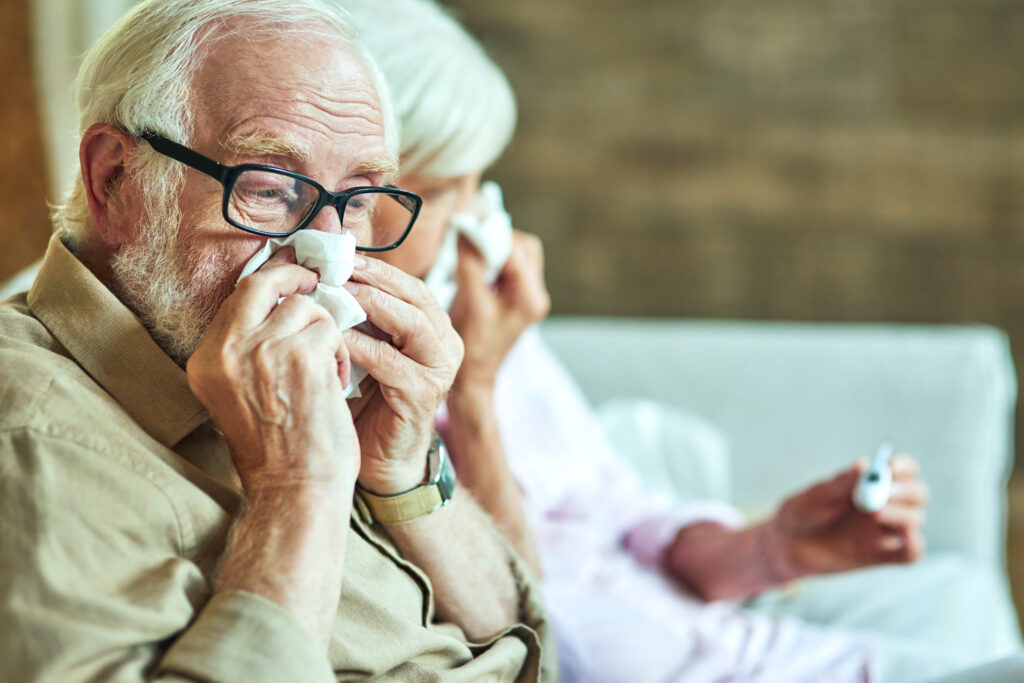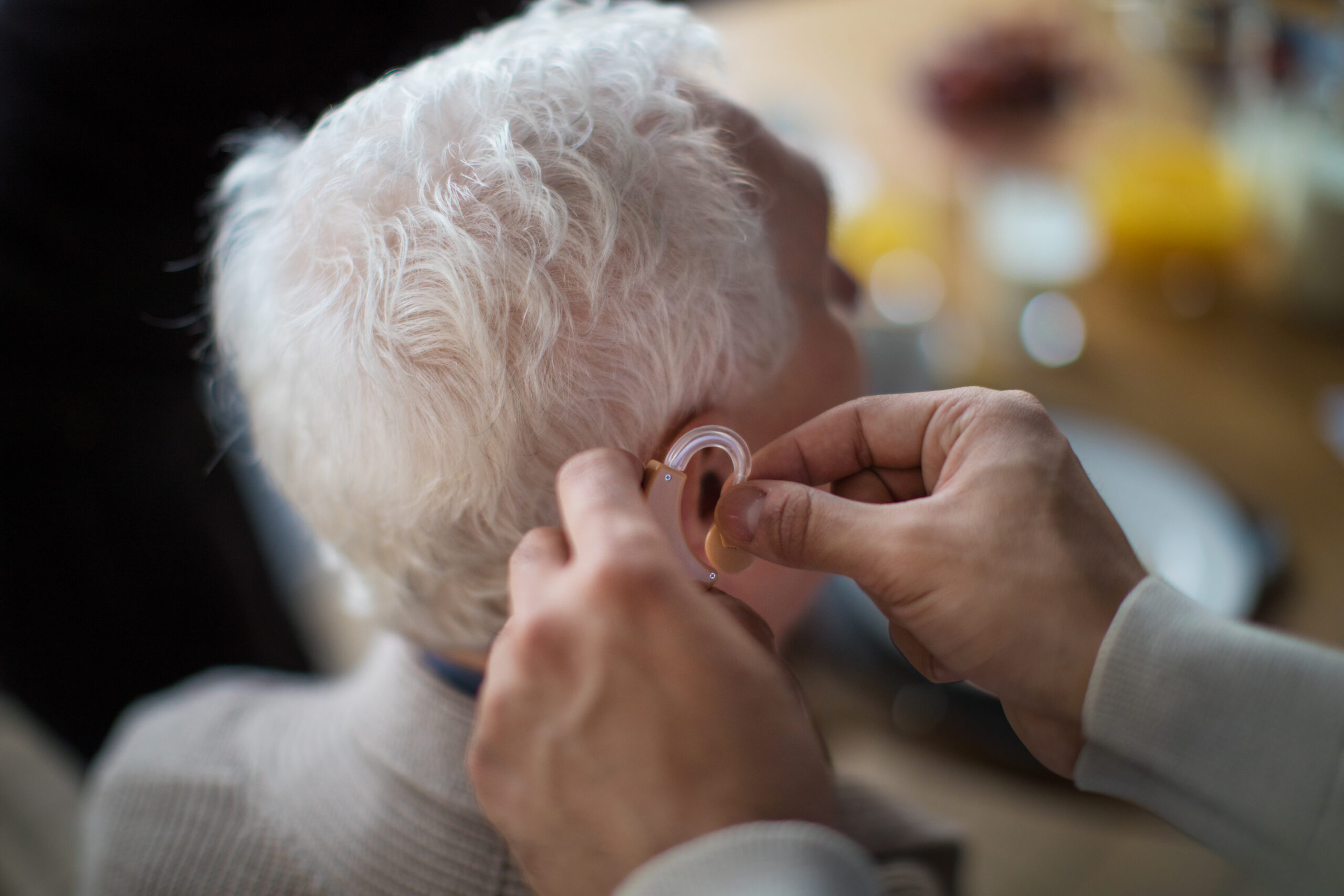

The third day of March is also known as World Hearing and Hearing Day. Hearing is an extremely important sense that seniors lose more often than people of working age. How can hearing problems be detected in the early stages? How do they arise? And are they treatable at all? MUDr. Miriama Šatalová, a physician from the Department of the Long-Term Ill at AGEL Bánovce Hospital, answered these questions as well.
According to statistics, up to one-third of seniors aged 65-70 have some degree of hearing loss, and about half of seniors aged 75 and older have some degree of hearing loss. As we age, degenerative changes occur in the inner ear and along the nerve pathways leading to the brain, which can affect hearing. These changes are also related to damage to the so-called hair cells, which play a key role in transmitting the sound signal to the brain. “Prolonged or very intense sound can completely destroy these hair cells and cause permanent hearing damage, as these cells do not regenerate or grow back. There is even a medical name for age-related hearing loss – presbyacusis,” explains MUDr. Miriama Šatalová, a doctor from the Department of the Long-Term Ill at the AGEL Bánovce Hospital. It is therefore a long-term process of gradual hearing loss, which usually occurs gradually over many years. Depending on the degree of hearing impairment, we then distinguish between hearing loss, partial hearing loss and complete hearing loss. It usually affects both ears at the same time, which is known as ‘bilateral hearing loss’ and causes hearing loss at high frequencies, meaning that higher-pitched sounds are harder to hear. In speech, it then looks like some consonants are inaudible to the patient, so different words sound the same. When and if we lose our hearing at all depends largely on genetic predisposition, but also, for example, on exposure to noise over the years.
“A firearms enthusiast is at much higher risk than, say, a gardener. Certain diseases affect the blood supply to the middle ear; for example, high blood pressure, diabetes or diseases of the cardiovascular system contribute to the development of this disease. Furthermore, ototoxic drugs, i.e. drugs that can damage hearing, are responsible for hearing loss. These include some antibiotics, anti-cancer drugs and others. Seniors generally take more medications than younger adults, so they are also more likely to suffer hearing damage from medications,” adds MUDr. Šatalová.
We can’t influence genetics
… but if we minimize the other factors mentioned, we can protect our hearing. As in the prevention of many other diseases, a healthy and balanced diet with plenty of antioxidants, eliminating toxins from food, limiting the use of ototoxic drugs, regular exercise, avoiding noise and, if this is not possible, using protective headphones are important. It is important to remember that hearing loss occurs gradually and many people do not even realise they have a problem at first.
“In practice, it seems that seniors turn up the volume on the TV or have trouble understanding us if there is background noise. It seems to the patient that other people are talking indistinctly, mumbling. In other words, they can hear but not understand. Some sounds may seem too loud to them, they have trouble picking up higher pitched sounds such as a ringing phone or birds chirping, male voices are easier to understand than female and children’s voices because of their thickness,” says the doctor. They also experience ringing, buzzing or hissing in one or both ears, also known as tinnitus, which doesn’t go away. Hearing loss certainly affects not only the senior themselves, but those around them as well. Just the aforementioned playing the television or radio louder can be disturbing not only to relatives but also to neighbours. When communicating with a senior citizen, patience must be exercised, as it is necessary to repeat a question or instructions frequently. Sometimes the senior himself resigns and, although he cannot hear, pretends to have understood what we want him to say, which can lead to further misunderstandings. The doctor must also be very patient when examining a patient with poor hearing. We try to speak louder, in a healthier ear, articulate strongly, say short sentences, repeat questions, or indicate what we want by signing. Sometimes I also communicate with deaf patients in writing – I write questions or instructions on paper.
Hearing treatment
Research suggests that untreated hearing loss in the elderly increases the risk of developing dementia, Alzheimer’s disease or depression. Hearing loss can be treated medically, surgically or by correcting hearing loss with hearing aids. “For severe hearing loss, cochlear implants may be indicated. It all depends on the degree and type of hearing impairment. However, I would definitely recommend not to simplify this problem and not to take it as a natural part of aging, because it negatively affects not only the health but also the social aspect of the patient’s life,” concludes Miriama Šatalová, M.D., a physician from the Department of the Long-Term Ill at AGEL Bánovce Hospital.
